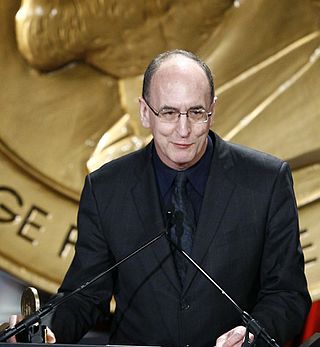
A classical music blog uses the blogging format to cover classical music issues from a wide range of perspectives, including music lovers, individual performers and ensembles, composers, arts organizations and music critics.

A classical music blog uses the blogging format to cover classical music issues from a wide range of perspectives, including music lovers, individual performers and ensembles, composers, arts organizations and music critics.
As blogging has become increasingly popular, the blogrolls for classical music (like those for other genres) have grown increasingly long. [1] "And yes, they are read," wrote music critic Anne Midgette in The New York Times . She reported that an anonymous blogger had posted her wedding picture on their blog, and within 24 hours she had heard about it from both a leading music critic and the marketing director of a major orchestra. [2] The young opera singer Anne-Carolyn Bird uses her blog, The Concert, to chronicle the ups and downs of building a career in her profession, but finds it a useful networking tool as well. A fellow Tanglewood Music Center alumnus, composer Judd Greenstein, tracked her down via her blog, which led to her giving a recital in his concert series. By May 2007, her blog was receiving 250 visitors a day, including opera administrators, critics and fellow singers. [3] Writing in The New Yorker , Alex Ross suggested that the growth of classical music blogs (from dozens when he started his own blog in 2004 to hundreds by 2007) could also be a positive force for maintaining and possibly building the audience for classical music. By giving performers and composers a far wider voice than they ever had before, their blogs put a human face on what Ross termed an "alien culture". He went on to write, "If, as people say, the Internet is a paradise for geeks, it would logically work to the benefit of one of the most opulently geeky art forms in history." [4]
James Jorden launched Parterre Box , a magazine devoted to opera, in 1993; since 2001 it is purely published as a blog. [5] In November 2006, the British arts journalist and author Norman Lebrecht devoted his weekly column in the Evening Standard to the proliferation of classical music blogs but attacked the accuracy of much of their reporting, describing them as "opinion-rich and info-poor". Still, that did not keep him from concluding that "until bloggers deliver hard facts ... paid for newspapers will continue to set the standard as the only show in town". [6]
Lebrecht launched his own blog, Slipped Disc, soon thereafter. [7] Several professional critics and journalists specializing in classical music had already preceded him with independent blogs in addition to their paid work for the print media. These include Alex Ross, of The New Yorker (The Rest is Noise), Joshua Kosman of the San Francisco Chronicle (On a Pacific Aisle), and Jessica Duchen of The Independent (Jessica Duchen's Classical Music Blog).
In addition to independent blogs by music journalists, print publications and radio stations are increasingly adding classical music blogs to their web sites, allowing their journalists more space to cover stories than would be possible in the print editions or on-air. Examples include Anthony Tommasini's blog at The New York Times , [8] Janelle Gelfand's at The Cincinnati Enquirer , [9] Jens F. Laurson's blog for the Washington, D.C. classical radio station WETA, [10] and Scott Foglesong's blog for the San Francisco Examiner . David and Francisco Salazar publish opera-related news in Opera Wire [11] in collaboration with Dallas Opera. [12]
Despite criticism and caution from the side of some professionals, classical music blogging has become viable because it fills a gap that print journalism has left open. Writing about Ionarts, a classical music blog in Washington, D.C., Marc Fisher of The Washington Post points out that "gradually, as such things happen, word spread about a place where music fans could find serious criticism and coverage of concerts and recitals too small or obscure to capture the attention of the Post's Style section." According to Ionarts blogger, Charles T. Downey, "With the unlimited space of a blog and a more specialized audience, there were things we could cover that the Post wouldn't or couldn't." [13]

A blog is an informational website consisting of discrete, often informal diary-style text entries (posts). Posts are typically displayed in reverse chronological order so that the most recent post appears first, at the top of the web page. In the 2000s, blogs were often the work of a single individual, occasionally of a small group, and often covered a single subject or topic. In the 2010s, "multi-author blogs" (MABs) emerged, featuring the writing of multiple authors and sometimes professionally edited. MABs from newspapers, other media outlets, universities, think tanks, advocacy groups, and similar institutions account for an increasing quantity of blog traffic. The rise of Twitter and other "microblogging" systems helps integrate MABs and single-author blogs into the news media. Blog can also be used as a verb, meaning to maintain or add content to a blog.

Alex Ross is an American music critic and author who specializes in classical music. Ross has been a staff member of The New Yorker magazine since 1996. His extensive writings include performance and record reviews, industry updates, cultural commentary, and historical narratives in the realm of classical music. He has written three well-received books: The Rest Is Noise: Listening to the Twentieth Century (2007), Listen to This (2011), and Wagnerism: Art and Politics in the Shadow of Music (2020).
Greg Sandow is an American music critic and composer.

Tobias Picker is an American composer, pianist, and conductor, noted for his orchestral works Old and Lost Rivers, Keys To The City, and The Encantadas, as well as his operas Emmeline, Fantastic Mr. Fox, An American Tragedy and Lili Elbe, among many other works.
Eighth Blackbird is an American contemporary music sextet based in Chicago, composed of flute, clarinet, piano, percussion, violin, and cello. Their name derives from the eighth stanza of Wallace Stevens' poem Thirteen Ways of Looking at a Blackbird.

Peter Gelb is an American arts administrator. Since August 2006, he has been General Manager of the Metropolitan Opera in New York City.

James Lawrence Levine was an American conductor and pianist. He was music director of the Metropolitan Opera from 1976 to 2016. He was terminated from all his positions and affiliations with the Met on March 12, 2018, over sexual misconduct allegations, which he denied.

Anne Midgette is an American music critic who was the first woman to write classical music criticism regularly for The New York Times. She was the chief classical music critic of The Washington Post from 2008 to 2019, prior to which she wrote for The New York Times from 2001 to 2007. A specialist in opera and composers of contemporary classical music, Midgette advocates the importance of online criticism and has previously maintained a classical music blog.

Norman Lebrecht is a British music journalist and author who specializes in classical music. He is best known as the owner of the classical music blog Slipped Disc, in which he frequently publishes articles. Unlike other writers on music, Lebrecht rarely reviews concerts or recordings, preferring to report on the people and organizations who engage in classical music. Described by Gilbert Kaplan as "surely the most controversial and arguably the most influential journalist covering classical music", his writings have been praised as entertaining and revealing, while others have accused them of sensationalism and criticized their inaccuracies.

Simone Andrea Dinnerstein is an American classical pianist.
Ingpen & Williams International Artists' Management, founded in London in 1946, was a British classical music talent management agency. It was named for founders Joan Ingpen and her dog Williams, a dachshund.
The Center for Contemporary Opera (CCO) is a professional opera company based in New York City, and a member of OPERA America. The company focuses on producing and developing new opera and music theater works and reviving rarely seen American operas written after the second World War. The Center for Contemporary Opera has staged the premieres of many works written during the latter half of the twentieth century. Works are performed at all stages of development from readings to workshops to full productions on the professional stage. In line with its mission to promote an interest in new operatic and music-theater culture among the American public, the company presents panel discussions and colloquia, and publishes a bi-annual newsletter Opera Today. Since 2004, the company has been a regular participant in the New York City Opera's annual festival, "Vox: Showcasing American Composers".
While the term "blog" was not coined until the late 1990s, the history of blogging starts with several digital precursors to it. Before "blogging" became popular, digital communities took many forms, including Usenet, commercial online services such as GEnie, BiX and the early CompuServe, e-mail lists and Bulletin Board Systems (BBS). In the 1990s, Internet forum software, such as WebEx, created running conversations with "threads". Threads are topical connections between messages on a metaphorical "corkboard". Some have likened blogging to the Mass-Observation project of the mid-20th century.
James Glenn Jorden was an American blogger, journalist and music critic who wrote about opera. He was known for founding and editing the zine Parterre Box.
Pro Musica Hebraica (PMH) is a not-for-profit organization whose mission is "to present Jewish classical music – much of it lost or forgotten – in a concert hall setting." Since April 2008, Pro Musica Hebraica has presented 13 concerts, typically two per year at Washington D.C.’s Kennedy Center for the Performing Arts. The concert series featured performances by Itzhak Perlman, the ARC Ensemble of Canada, the Apollo Ensemble of Amsterdam, Jascha Nemtsov, and Marc-André Hamelin, among others. The concert recordings are not sold, but are available on the website for free. PMH concerts are occasionally broadcast on WETA (FM).

Sinfini Music was a classical music website containing written features and reviews, news, animations, cartoons, quizzes and filmed sessions. The site was owned by Universal Music Group but claimed to be editorially independent, covering music and releases from all record labels, artists and venues.
Sophie's Choice is an opera by the British composer Nicholas Maw, with a libretto by the composer based on the novel of the same name by the American novelist William Styron. It was premiered on 7 December 2002 at the Royal Opera House, London.
Prototype Festival is an annual, weeklong contemporary opera and musical theater festival held in New York City.
Sarah Hutchingsnée Reneer is an American composer of contemporary opera, art song, and choral works.
Will Liverman is an American operatic baritone, described by NPR as 'a new, exciting voice in the opera world'. He has performed in several roles at the Metropolitan Opera.